|
I'm reposting a blog I wrote several years ago about hiring a liquidator as it's still a very important topic. Happy New Year and see you at our next sale!
----------------------------------------------------------------------------------------------------------------------------------------------------- Dated 6/28/16 There are so so many estate sellers out there, but they are not all the same. Estate sale liquidation is not a licensed industry so you can get a wide variety of liquidators offering their services. Many folks go right away to the less expensive companies and spend no time comparing the services that each company offers. That is a big mistake. There are big variances and as the client you should look carefully at the fine print and the list of services and types of sales the company specializes in. Below is my Top Ten List of What to Ask an Estate Seller when interviewing them to run your estate liquidation sale: 1. How many years in business have you been doing sales? Having 30+ years in business may make you a formidable candidate, but this same person may not be updated on all of the new ways to promote a sale - they may not be social media savvy. It takes a lot of work to keep modernizing operations - someone who may be at the tail end of their work life may not want to spend the time nor money upgrading their services. So don't discount a newer company as they are likely more eager to please. 2. How many people would you assign to work in my home during the actual sale? The answer would depend on size of house, how many items are for sale and what types of items are for sale. Ahouse full of high end luxury clothing or small items like jewelry need's extra staffing and possibly a security detail manning the door. If someone tells you 3-4 ppl and you have a home 3,000 square feet and up I"d be concerned that the company is not providing enough staff to have oversight in all the areas of the home. I've heard from many customers that they went to a large home and there were only 2 ppl running the sale. It's common practice that the lower end companies tend to use minimal staff to run their sales. That is the only way they can charge the smaller commission fees. With less staff, you have less people on the floor selling your items and it's also more likely something will get stolen. How can 2-3 people be everywhere in a large home - the fact is they can't. 3. Are you insured - can I see your insurance certificate (to prove insurance and the liability limits). Stay away from a company that cannot provide you with an insurance certificate. Also, make sure the company is registered with the state. There are no licensing requirements for estate liquidators, but if they are a legit company they would have to be registered with the state. 4. Do you have a website? A company that is willing to spend money to have a web presence is a company who is not going to run off with your proceeds. It's a company who plans to be around for a while. Running a website and keeping it fresh and updated costs money. If the liquidators website looks rundown and dated that is likely what your sale will look. 5. Are your staff trained to sell or are they just there to make sure nothing is stolen. My theory is the more trained staff on the floor, the more people that are there to sell the contents of the sale. If staff is just there to ensure no one steals no one is really overseeing the selling process. 6. What day's and times do you run your sales? 7. Do you price every item? How do you conduct your research and what items do you look up? 8. How do you stage the items? There is a BIG difference to the way a sale is staged. Just look at pictures of current sales. Some companies spend a lot of time on prepping and some don't. Customer's generally like a fully staged home as they find it easier to find items and when contents are displayed properly they are more appealing to the buyer. 9. Do you have references/testimonials? There are many ways to check up on a company. See if they have testimonials on their website, reviews on Google/Angie's List/Square/Yelp. What is their rating with Better Business Bureau? 10. Most importantly - do you connect with the person? Does this person make you feel comfortable as you'll be handing over your keys and all of your belongings and trusting them to sell your household contents. Even with testimonials - your gut instinct is the one you should listen to the most! If you go thru the above list you will most certainly hire the right company for your sale. Every home is different so you have to ask yourself, do you care how many people are working your sale, do you care if security is provided, do you care if the sale is staged properly. Are you willing to pay a bit more in commission to have the sale done in a professional manner? Maybe it doesn't matter to you. There are so many choices out there so be sure to interview 2 to 4 companies in order to find the right estate liquidator for your needs.
3 Comments
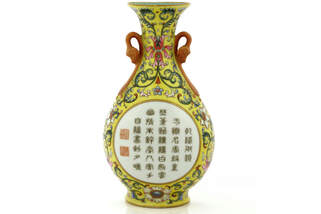 Originally Published by Mike Wehner, BGR September 5, 2019
The vase is in incredible condition considering its age and it was originally made for an 18th-century Chinese emperor who reigned between 1735 and 1796. Now, centuries later, it somehow found its way to the shelves of a charity shop. High-end auction house Sworders will now handle the selling of the piece and it’s expected to fetch a minimum of £50,000 ($61,600) and perhaps as much as £80,000 ($98,700) when it goes up for sale on November 8th. The item description from Sworders reads as follows: The 8in (19cm) high pear-shaped wall pocket with ruyi handles and a yellow ‘sgraffito’ ground is inscribed with a poem praising incense alongside a yuti mark and two iron-red seal marks reading Qianlong chen han (‘the Qianlong Emperor’s own mark’) and Weijing weiyi (be precise, be undivided). It’s a major win for the lucky owner and it will surely make a lovely addition to someone’s fancy art collection. You probably won’t have the same luck, but maybe it’s worth a trip to a nearby thrift shop just to be sure. Here is a great article written by an expert estate sale shopper. Please read thru as this article is a great resource for all estate sale shoppers.
By Kentin Waits Exploring estate sales has been one of my favorite summertime activities for more than 20 years. For this professional picker, roaming through old houses with the possibility of hidden treasure around every corner is a thrill like no other. But in a world of big-box stores and online shopping, navigating the unique world of estate sales is practically a lost art. So, here is my best advice to help novice estate sale shoppers buy better and enjoy the experience more: 1. Know what to buy - estate sales can be exciting. It’s easy to get caught up in the moment and make a few buying blunders. Remember, not every deal at an estate sale is a good deal. Before you head out the door, check out my article “7 Things I Always Buy at Estate Sales” and research prices on specific items you’re looking for. To avoid buyer’s remorse, ask yourself two clarifying questions before buying anything:
2. Arrive early - well-advertised sales can be competitive affairs. Arrive early on the first day of the sale, claim your spot in line and savor the anticipation. Don’t be afraid to strike up a friendly conversation with other early birds. They often have the inside scoop on upcoming sales and can even keep an eye out for items you’re looking for once the doors open. 3. Chill out - while it’s smart to be early, don’t get ahead of yourself. Some aggressive shoppers try to pressure organizers into making early sales — sometimes knocking on their doors the night before the event begins. This sort of tactic is never successful and always offensive. Relax. You’ll miss some bargains; you’ll get some bargains. It’s a dance, not a race. 4. Travel light - Don’t arrive at an estate sale carrying a large purse, tote bag or backpack. It’s nearly impossible for sale organizers to monitor the entire home, and big bags only arouse suspicion. Bags and boxes are usually available on site for buyers who purchase multiple items. 5. Take cash. It’s the question that launches a thousand eye rolls: “Can you hold this for me while I run to the ATM?” Don’t be that guy. While professionally managed estate sales often accept credit cards, cash is still king. Carry cash, including an assortment of smaller bills so proprietors don’t have to struggle to make change. (Ones and fives are especially appreciated.) 6. Haggle strategically -Though haggling is usually acceptable at estate sales, it helps to brush up on the basics of good negotiating before hitting the estate sale circuit. A few things to keep in mind:
Remember, your hosts are probably juggling dozens of tasks related to settling an estate — packing, dividing sentimental possessions between friends and family, selling the home. 8. Listen- particularly in small towns, estate sale hosts are eager to share the backstory of the items they’re selling. This is part informational and part emotional. In other words, sellers want to know their treasured items are going to a good home where their histories will be appreciated. Though it may sound quaint, allow some room for this type of personal exchange. It’s part of what makes estate sales unique and fun. 9. Check upholstered furnitureUpholstered furniture that’s been exposed to cigarette smoke, pets or damp conditions can hold those odors for years. Some less-scrupulous estate sale organizers attempt to mask these noxious smells by burning scented candles or using heavy aerosol sprays. Before buying any piece of upholstered furniture, give it a quick smell test — a nose-to-the-fabric sniff. If something seems off, avoid that piece of furniture or be prepared to invest in reupholstering. 10. Mind your measurements - looking for specific dimensions in furniture, drapery or picture frames? Keep those measurements in your wallet or smartphone. It takes some of the guesswork out of buying and helps avoid investing in items that ultimately won’t work in your home. I also carry a small tape measure in my car, since not all sellers have one handy. 11. Be kind - and, finally, the most important tip of all: Be kind. Since estate sales are often prompted by a death in the family, be sensitive to the bumpy emotional journey your hosts may be on. Stifle critical comments about decor, clutter or housekeeping practices. Remember, everything you’re casually perusing represents the life of a lost loved one. 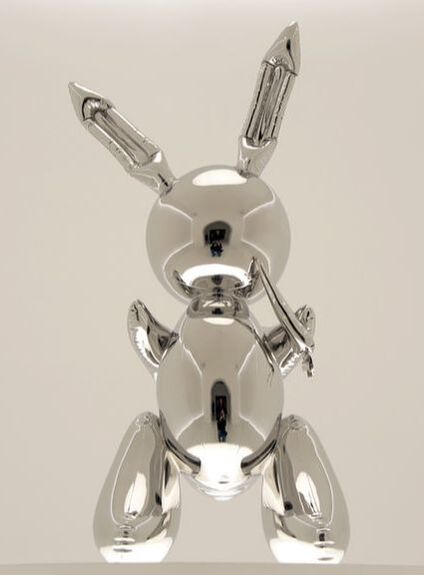 Cool story from NPR... May 2019 ART & DESIGN Jeff Koons' 'Rabbit' Fetches $91 Million, Auction Record For Work By A Living Artist May 16, 2019 LAUREL WAMSLEY A 3-foot-tall silver bunny just set an art world record. Rabbit, by the playful and controversial artist Jeff Koons, sold for more than $91 million at Christie's Auction House — the most for work by a living artist at auction. Robert Mnuchin, an art dealer and the father of the Treasury secretary, had the winning bid on behalf of a client. Rabbit by Jeff Koons was sold for more than $91 million at Christie's in New York on Wednesday night. It set a record for the most expensive work by a living artist to be sold at auction. Seth Wenig/AP The stainless steel sculpture is a faceless space bunny, a balloon that's not a balloon. The piece was one of 11 works that were offered from the collection of magazine publisher S.I. Newhouse, the longtime chairman of Condé Nast who died in 2017. "The work is considered the holy grail of Koons works among certain collecting circles, and the bunny's allure was burnished by the fact that Newhouse was its longtime owner," Artnet writes. "It also received an extraordinary pre-sale display at Christie's with a custom-built room that perched the rabbit on a pedestal surrounded by lighting mimicking a James Turrell installation." In its lot essay, Christie's described Rabbit as melding "a Minimalist sheen with a naïve sense of play": "It is crisp and cool in its appearance, yet taps into the visual language of childhood, of all that is pure and innocent. Its lack of facial features renders it wholly inscrutable, but the forms themselves evoke fun and frivolity, an effect heightened by the crimps and dimples that have been translated into the stainless steel from which it has been made. ... The steel surface of the titular bunny initially appears smooth and balloon-like, the forms reduced to some abstract, Platonic ideal." The sculpture was cast in 1986 in an edition of just three, plus an artist's proof. The one sold Wednesday was the last one in private hands, with the others in the collections of the Broad Art Foundation in Los Angeles, the Museum of Contemporary Art in Chicago and the National Museum of Qatar. With the sale, Koons retakes the mantle of most expensive living artist. He had lost it the title to David Hockney, whose 1972 painting Portrait of an Artist (Pool with Two Figures) sold at Christie's last year for $90.3 million. Previously, Koons held the distinction when his orange Balloon Dog sold for $58.4 million in 2013. Article courtesy of Estatesales.org
I first heard about Mr. X, the guy who made a million dollars at an estate sale, the way people tend to hear about these things: from a friend of a friend. Mr. X was an art collector and artist in his 40s who specialized in picking and knew everything there was to know about art, Texas art especially. He’d gone to an estate sale a few years back and hit the jackpot. Apparently, it wasn’t the first time. So how does an art guy end up with a million dollar picking hustle? That’s what I set out to learn when I called Mr. X to pick his brain about how to get rich from estate sale-ing. Mr. X (who asked to remain anonymous for obvious reasons) was friendly over the phone, forthcoming with stories, and quick to laugh at my jokes, which put me right at ease. We chatted for about an hour, interrupted only a few times by his toddler step kids — “my real full-time job,” he explained, “along with taking care of my wife.” As of late Mr. X has become a family man, so he likes to stick close to home. But whenever the timing’s right and he can find a good estate sale, he goes out on the hunt. After all it’s hard to walk away from the kind of thrill where you can saunter into an antique store in Smalltown, Texas, haggle a Japanese cloisonne vase down from $85 to $65, and then turn around and sell it to a well-known auction house for $180,000. And that’s just one of the stories Mr. X told me. Some might say he has the eye. But he’d probably tell you picking is in his blood. “All my life I used to go to garage sales. Westbury Square, the Sharpstown flea market, museums with my dad,” he said, naming places in Houston, Texas. “At one point I would hit anywhere from seven to eight estate sales a day. Now I’m a lot more selective.” What began as a proclivity for Texas art, mid-century modern furniture and decor, and oil & gas memorabilia ubiquitous in East Texas, has been refined over the years to make more efficient use of his time — for a bigger return on investment. Mr. X has narrowed down his hunts to estate sale finds with international appeal, pieces that can be bought and sold to big-name houses like Christie’s and Sotheby’s. His specialty as of late? Rare Chinese antiquities. Japanese cloisonne vase. Photo courtesy of EJ’s AuctionsTrack Trends to Make Money at Estate SalesMr. X didn’t come by the antiquity trend by accident. In fact, after talking to him a few minutes you get the sense that not much in his life is happenstance. I listened while he discussed the ins and outs of ancient Chinese Dynasties the way some people might rattle off sports stats. Whether it’s rare stamps or ancient clay pottery, he’s got an opinion on it. But his picking habit is more than just a penchant for pretties. He keeps his eye on the prize, figuring out in half the time what might take some people years: how to make money shopping estate sales. “Because at the end of the day, the market fluctuates, just like gas and oil, or gold and silver,” Mr. X said. “But for the last five years, Chinese antiquities has probably been the strongest in the world, hands down. African and Mexican are in the tank. Japanese, depending on what it is, is mediocre. I’m looking for pieces that are collected worldwide at auction.” If you frequent estate sales at all, you’ve probably run into some of the regulars, die-hards, often antique dealers, who tail the trends and show up before anyone else does to get the best treasure. They tend to be aggressive, which can seem intimidating to some estate sale shoppers. Mr. X says, “They watch out for me.” In fact, he once supplied most of the antique dealers in his area and antique shows around Texas, filling up their locations or taking orders, dealing mostly in oil & gas and mid century mod, but procuring anything they wanted. He’s even been known to turn around and sell items in the estate sale’s front yard when he’s beat someone to the punch. It’s his experience and persistence that give him his competitive edge, hands-on learning you won’t get online. “There’s not one time been a piece that I’ve spotted and went after that I haven’t got,” he said. Estate Sale Indicators to Find TreasureSo how does Mr. X know whether or not an estate sale will be worth his time ? He finds sales the way most people do: on the internet. To narrow his search, he looks for “indicators,” details that give insight into the type of of estate sale, like: estate sale photos and descriptions, but also the estate’s neighborhood or the estate sale company’s prior sales. He suggests playing detective on your own to evaluate estate sales since they don’t always include prices on key items. Context clues can offer a wider perspective. “Sometimes you can see some of the prices on some of the other things, and it will give you a general idea of how they are pricing,” Mr. X said. He also suggests checking real estate appraisal records for an idea of the house’s layout. This will give you an idea of where to look when you get through the door. Because when you’re competing for a top-dollar item, you have no time to lose. The Internet is where Mr. X found the million dollar estate sale in the first place. By fate or coincidence, it was the only estate sale that day with any Asian indicators, so it immediately caught his eye. After looking into the estate and sale, he devised his strategy: he would buy up all the Chinese art and antiquities he could, and worry about research later. With the low prices he expected to find, based on other indicators, the pay-off was sure to outweigh the risk. “I knew if this piece, or that one, turns out to be just decorative, not a big deal because of how they were priced to begin with. Some of them were $100, some $300, $150, $20, $5, $10. Low prices.” (When it came to specifics or photos of the items, Mr. X was a bit more guarded, which was understandable. Professional pickers don’t usually like to give away all their secrets). His plan paid off. When the sale opened, he went straight for the items he’d seen online. When the lot of Chinese antiquities turned up an assortment of porcelain, ceramic, and paintings he knew he’d hit the jackpot. Chinese clay teapot, Photo courtesy of EJ’s AuctionsFlipping Estate Sale TreasuresHowever, Mr. X wasn’t in the clear just yet. In order to secure a contract with an auction house, the antiquities would still need to be authenticated. Especially in this market, knock-offs exist. Proper authentication can sometimes take months. When he got home, he began preliminary research, comparing appraisals and pricing online, and it was then that he had a better idea of the treasure he had on his hands — possibly more valuable than he’d imagined. It was through his online research that Mr. X came across the name of original owner of the lot — the estate owners’ ex-husband, who happened to be alive and well in a nearby town. Doing his due diligence, Mr. X contacted the man and sent him some photos, hoping to get more information he needed for authentication. “I reached out to him for several reasons,” Mr. X said. “To get provenance on pieces I’d already identified, to get help on the ones I hadn’t identified yet, and also to see if he was interested in any of his personal items.” The two exchanged correspondence, but his attempts were unsuccessful. Then, Mr. X finally settled on an auction house and signed the contract that would send the first items on a world tour throughout China, including Tai Pei and Hong Kong. It seemed everything was primed and ready to go — all except for one small catch. The original owner wanted his stuff back. An Estate Sale Dream Turned NightmareUp until now, things had gone pretty smooth for Mr. X on the treasure-hunting front, with no major hiccups, even when he was bold enough to flip finds in someone’s front yard. But little did he know that when he walked into that estate sale treasure trove, he would also walk into a complicated ex-step-family situation and arduous lawsuit that would question Mr. X’s right to legal ownership. It’s a common scenario, especially with multiple marriages. It’s hardly unusual for an ex-spouse to leave some belongings at their former residence, avoidance or oversight, stuck in a closet or attic where it might gather dust for years— in this case, many years after the divorce. It’s also not unusual for adult children, who may live out of city or state, to not know which items belong to an ex, or how much they’re worth. Without Mom or Dad to ask about old so-and-so’s weird art, the kids are left to figure it out on their own — or rely on an estate sale company. The day before auction, the auction house Mr. X was under contract with received a Cease & Desist letter. The property’s original owner claimed the art had been stolen by the estate. Since Mr. X was now under contract with the auction house, he was liable for hundreds of thousands of dollars. “An auction house doesn’t care who’s right or wrong. They’re a business, and at the end of the day, you’re the name on that contract,” Mr. X said. “So on the low end, I was over $200k in withdraw fees, plus attorney fees because of their claim.” Luckily for Mr. X, after some lengthy litigation, he won the case. There were too many instances where the estate executors did not dot their i’s or cross their t’s, he said. All told, the value of the property amounted to over a million dollars, with still more auctions pending. Not bad for a couple hours spent at a neighborhood estate sale. “But if I hadn’t won the lawsuit,” Mr. X notes, “I would have owed the auction house 200 or 500,000 dollars. So that was the position they put me in.” While this was a happy ending for Mr. X, one suspects it wasn’t so nice for the estate’s executor, or the the original owner of the Chinese antiquities. What went wrong — and how can others avoid this nightmare scenario? Mr. X has a few ideas. The people who held the estate sale cut a lot of corners, he said, choosing not to follow estate sale best practices, like proper and accurate documentation. “The kids apparently didn’t want to process the estate like they should have, and give an inventory or itemized list to the court like they should have as executor,” he said. Had they followed documentation best practices, they would have had more evidence to support their case. The executors also didn’t choose well when they decided to hire an estate sale company. Hiring an estate sale company experienced enough to know how to accurately appraise and price items, even unusual or big-ticket finds, is crucial. One way to determine a company’s expertise is from client reviews. But you should also consider how long they’ve been in business, professional accreditations, formal education, and specializations. The truth is sometimes new or fly-by-night estate sale companies don’t have the expertise that comes with years of experience. To compete with more established businesses, newer estate sale businesses may offer a “good deal,” which might seem to save money up front, but could cost executors millions later — as in the case of Mr. X. “Every estate sale company has the same spiel that leads one to believe that they’re gonna get your family top dollar, and they’re experts on this and that. But at the end of the day, not all of them are,” Mr. X says. Unfortunately, as the number of operating estate sale companies has increased to meet growing demand, so have opportunities for unethical practices. “Just to get in the door, they’re gonna try to undercut companies that are already established by a lower percent,” Mr. X said. “Just to get their phone ringing.” He warns against companies that outprice the competition. “Many people go with an estate sale company that’s only gonna charge 22 or 25%. Well, in this business you get what you pay for.” Finally, another issue that led to Mr. X’s victory concerned the estate sale contract. Estate sale contracts should always include a clause to account for any valuable items that may pop up or get “found” during the sale, so they are returned to the estate. In this case, their estate sale contract didn’t include key items. “When they signed the contract with the estate sale company, there was no mention of any art whatsoever in the contract,” he said. A simple oversight that turned into a win for Mr. X. So how does Mr. X make big money from estate sales? He offers a few tips.
“Learning Chinese and Japanese antiquities is like getting into stamps or coins,” Mr. X said. “And most of these estate sale companies aren’t versed in it yet and not knowledgeable.”
While the Internet has many valuable pricing and appraisal resources, the best way to study estate sale items is by handling, feeling, and studying them. Often, estate sale photos are distant, blurry or won’t show identifying marks. The indicators may look promising, but it’s in poor condition, a repo, from the 1970s, or Made in China — yesterday. Sometimes, you can get idea of the pricing and always assess the neighborhood as you would any estate sale. Research the estate If you have the estate sale’s address, research the property. Mr. X suggests visiting appraisal websites to get an idea of the estate. This gives you an idea of the house layout so you can go straight to the room when the doors open, especially in competitive sales. You can also research estate ownership. Mr. X does a Google background check to see if the owner was in the war, military, or Oil & Gas, for example, to give him a better idea of the potential for authenticity. Research the estate sale company Look into the estate sale company. New estate sale companies might not be as knowledgeable when it comes to Asian antiquities and, as the case of the aforementioned estate sale, they may price items too low. “They could have a Qing or Ming Dynasty vase or a Qin shi or what have you, and don’t know it, and they’ll have it priced for 100 dollars, 200 dollars,” said Mr. X.
“If I see it, I go. I study estate sales in California, San Antonio, Austin, Louisiana, Mississippi, Dallas, and if I see it, I’m either on the road or on the plane to get to it” he said. When he’s in the field, if the sale starts at 8 or 9 in the morning and it seems promising, he’ll even post up the night before, or get there super early to be first or with the first group through the door. This strategy is non-negotiable.
“I would advise anyone doing it to make money to take photographs of the estate sale. Make sure you have the address written on the receipt, and you have all your documentation. So if some piece does turn out to be very valuable, you’re covered,” Mr. X said. Estate Sale Documentation checklist:
“You’ll always have your ladies who go right to the kitchen and look for vintage Pyrex or Ruby Red glass or Pampered Chef. That’s what they come for. So just because you have 30 or 40 people in line doesn’t mean they’re your competition.” said Mr. X. Another tip: stay up to date on the sales in your neighborhood by signing up for daily estate sale updates from EstateSales.org. And Mr. X’s biggest tip of all? “You’re not gonna find any treasure if you’re not out there looking, that’s for sure.” For many people, gathering possessions is just the stuff of life. The average U.S. household builds up a plethora of stuff, which means that figuring out what to keep and what to discard is no easy matter.
|By Mary MacVean/LA TIMES We move them from shelf to shelf, and from home to home. The federal government estimates that a quarter of Americans with two-car garages don't use them for automobiles. Even those without a permanent home carry their stuff around with them. We like to shop, own, trade or give away. Things matter to us, for reasons practical and emotional. "Our possessions all have magical qualities. Many, if not most, of the things we keep have an essence that goes beyond the physical character of the object," says Randy Frost, a professor at Smith College, in Northampton, Mass., who has studied and written about hoarding and is the author of "Stuff." A stroll through the Sunday flea market outside Fairfax High School provides a catalog of some of those magical objects: varsity letter jackets, rotary phones, typewriters, fur blankets, old ties and cowboy boots. Butterflies pinned to cardboard and framed. A crystal Eiffel Tower. A blue guitar. Vendors collect stuff to sell to people, who often resell the stuff all over again. "This market has the best eclectic stuff — a collection of people's things that are old," says LaNell Petersen, shopping on a recent weekend with her sisters. She likes the hunt for something she believes is more valuable than its price. Consider these statistics cited by professional organizer Regina Lark: The average U.S. household has 300,000 things, from paper clips to ironing boards. U.S. children make up 3.7% of children on the planet but have 47% of all toys and children's books. So why can't we let go? And what are the implications of our reluctance to pare down, our inability to get organized? The notion that things don't matter is rubbish, the experts say. They matter for many reasons: keeping up with the Joneses, recalling departed loved ones, even objective value — like the 17th century Dutch painting that is among many objects of desire in Donna Tartt's "The Goldfinch." Our things can give us a sense of security, connection to the past, to the people we love. "When you go home in the evening after work, you go in your house and you feel comfort because you have your stuff," Frost says. But that security may be a crutch too, "a sort of public artificial mask," says Andrew Mellen, a professional organizer and author of "Unstuff Your Life." "Full bookshelves say, 'I'm well-read. I have lots of books.' But really, you just buy books. Is your home an accurate external reflection of you?" Lark had bookcases full of the books she used to earn a doctorate in history. When she downsized to an apartment, she looked at the volumes and came to the conclusion that they represented her accomplishment, her intelligence. As she decided what to keep, "I had to ask myself a lot of questions. Who am I without these books? What will people think of me? Getting rid of them, am I less smart?" Finally, she passed them on to a younger doctoral student and says she's happier for it. But there's no single prescription: "One person is happy living in a sparsely furnished yurt," says Gretchen Rubin, who devoted a chapter of her book "Happier at Home" to assessing her possessions, "while another person is happy adding to a collection of fine porcelain. There's no one right way." "I don't think stuff is inherently wrong or bad," Mellen says, "but if things have become obstacles to your happiness, that's a problem." Figuring out what to discard and being able to actually toss stuff is crucial to an ordered, happy life, experts say. "I am impressed by the degree to which outer order controls inner calm," says Rubin. She recalls the friend who told her, "'I cleaned out my fridge, and now I can change careers.'" Among our keepsake possessions, photos have their own "symbolic weight," prompting people to save even pictures of people they no longer remember, Rubin says. Eventually many of them end up in the trash — unless Mark Kologi gets his hands on them. For 17 years now, artists in need of inspiration and all sorts of other people have found their way to his flea market stall to root through bins of miscellaneous snapshots, most of which sell for 50 cents apiece. He estimates he's sold millions over the years. "They don't belong in the garbage," he says. Some have been bought by Luiso Berdejo, who was inspired to make the film "Violet" by one picture. In the film, a young man falls in love with a woman he sees in a photo from that stall and sets out to find her. As Berdejo talks, another customer encourages a friend to "just reach in and pull one out." You never know where it might lead. The following is excerpted from No Thanks Mom: The Top Ten Objects Your Kids Do NOT Want (and what to do with them). A great article by By Elizabeth Stewart
Your house, and what it contains, is a minefield in the eyes of your grown children. They can see from your example that collections of stuff are a curse; such objects are superfluous to a life well lived. They want a clean, clear field in which to live their lives. Your grown children will not agree to be the recipients of your downsizing if it means their upsizing. In the following list of the Top Ten Objects Your Kids Do Not Want — inspired by conversations (or lack thereof) about my keepsakes with my 30-year-old son, Lock, and his wife, as well as by similar conversations I’ve had with hundreds of boomer clients and their millennial heirs — I will help you find a remedy for dealing with each: No. 10: Books Unless your grown kids are professors, they don’t want your books. There are a couple common mistakes my clients make in valuing books: The 17th-century books are likely to be theological or grammar-based, and are not rare. The 19th-century books are probably not in good condition, and since most came in a series or set, it’s unlikely you’ll have a full (valuable) set. Remedy: If you think the book is relatively common plug the title, author, year of publication, and publisher into a search engine. A favorite book site of mine is Biblio.com. Once you have background information, call a book antiquarian. No. 9: Paper Ephemera - Things like family snapshots, old greeting cards and postcards are called paper ephemera. Old photos are not worth anything unless the sitter is a celebrity or linked with an important historical event or the subject is extremely macabre, like a death memorial image. Old greeting cards are not valuable unless handmade by a famous artist or sent by Jackie O. Postcards are valued mainly for the stamps. Remedy: Take all your family snapshots and have them made into digital files. The other option is to sell those old snapshots to greeting card publishers who use them on funny cards or give family photos to image archive businesses like Getty. If the archive is a not-for-profit, take the donation write-off. No. 8: Steamer Trunks, Sewing Machines and Film Projectors Trust me, every family has at least three steamer trunks from the 19th century. They are so abundant that they are not valuable, unless the maker is Louis Vuitton, Asprey, Goyard or some other famous luggage house. Likewise, every family has an old sewing machine. I have never found ONE that was rare enough to be valuable. And every family has a projector for home movies. Thrift stores are full of these items, so, unless your family member was a professional and the item is top-notch, yours can go there as well. Remedy: Donate this category and don’t look back. No. 7: Porcelain Figurine Collections and Bradford Exchange “Cabinet” Plates - These collections of frogs, chickens, bells, shoes, flowers, bees, trolls, ladies in big gowns, pirates, monks, figures on steins, dogs, horses, pigs, cars, babies, Hummel’s, and Precious Moments are not desired by your grown children, grandchildren or any other relation. Even though they are filled with memories of those who gave them to your mom, they have no market value. And they do not fit into the Zen-like tranquil aesthetic of a 20- or 30-something’s home. Remedy: Find a retirement home that does a gift exchange at Christmas and donate the figurines. If you want to hold on to a memory of your mom’s collection, have a professional photographer set them up, light them well and make a framed photo for your wall. Collector’s plates will not sell anywhere to anyone. Donate these to a retirement village as well or to anyone who will take them. No. 6: Silver-Plated Objects - Your grown children will not polish silver-plate, this I can guarantee. If you give them covered casserole dishes, meat platters, candy dishes, serving bowls, tea services, gravy boats, butter dishes and candelabra, you will be persona-non-grata. They might polish sterling silver flatware and objects, but they won’t polish the silver-plated items your mom entertained with. The exception may be silver-plated items from Cristofle, Tiffany, Cartier, Asprey, and other manufacturers of note. Remedy: None. Give it away to any place or person who will take it. No. 5: Heavy, Dark, Antique Furniture - There is still a market for this sort of furniture, and that market, in the fashionable areas of the U.S., is most often the secondhand shop. You’ll receive less than a quarter of purchase price if you sell on consignment in one. Unless your furniture is mid-century modern, there’s a good chance you will have to pay someone to take it off your hands. Remedy: Donate it and take a non-cash charitable contribution using fair market valuation. Use reporting services such as P4A.com to find where this class of furniture sells. No. 4: Persian Rugs - The modern tranquility aimed for in the décor of the 20- to 30-somethings does not lend itself to a collection of multicolored (and sometimes threadbare) Persian rugs. Remedy: The high-end market is still collecting in certain parts of the U.S. (think Martha’s Vineyard), but unless the rug is rare, it is one of the hardest things to sell these days. If you think the value of the rug is below $2,000, it will be a hard sell. Like antique furniture, it may be best to donate. No. 3: Linens - Go ahead, offer to send your daughter five boxes of hand-embroidered pillowcases, guest towels, napkins, and table linens. She might not even own an iron or ironing board, and she definitely doesn’t set that kind of table. Remedy: Source those needlewomen who make handmade Christening clothes, wedding dresses, and quinceañera gowns. Also, often you can donate linens to costume shops of theaters and deduct the donation. A site like P4a.com has auction results to establish the fair market value of such objects. No. 2: Sterling Silver Flatware and Crystal Wine Services - Unless the scrap value for silver is high enough for a meltdown, matching sets of sterling flatware are hard to sell because they rarely go for “antique” value. Formal entertaining is not a priority these days. And of course, sterling must be hand-washed and dried. Can you see your kids choosing to use the silver? Same goes for crystal: The sets you have are too precious, and the wine they hold is too small a portion. Period. Remedy: Sites like Replacements.com offer matching services for folks who DO enjoy silver flatware and have recognized patterns. Because they sell per piece, and therefore buy per piece, sellers get a rather good price. Sell your whole silver service; it will be “pieced out.” Unless your crystal is Lalique, Moser, Steuben, Baccara, or another great name, you will not be able to sell your “nice set.” Give “unknown maker” sets away, fast. No. 1: Fine Porcelain Dinnerware - Your grown children may not want to store four sets of fancy porcelain dinnerware, and frankly don’t see the glory in unpacking it once a year for a holiday or event. This is the saddest story I have to tell my clients: your grown kids and grown grandkids DO NOT want and will NEVER want five or more fine china services. They don’t even want one. They do not see the logic. They don’t want porcelain tea sets or dessert, fish, or fruit services either. Ask yourself, when was the last time you witnessed your grown son using a saucer? Remedy: Like silverware, china is something to consider for sale to a replacement matching service like Replacements.com. Know your pattern to get a quote from one. Because such replacement companies buy per piece, the aggregate of the selling price is always more than a bulk sale at a consignment store, which might be your only other option. By Elizabeth Stewart Elizabeth Stewart is the author of No Thanks Mom: The Top 10 Objects Your Kids Do Not Want (and what to do with them). She is a certified member of the Appraiser's Association of America and collects "no thanks" stories from her three decades of experience. To learn more about what you own, visit ElizabethAppraisals.com.Next Avenue Editors Also Recommend:
Courtesy of NY Post
By Tamar Lapin January 16, 2018 Three brothers in New Jersey, and a keen-eyed German art aficionado, made a killing from the sale of a small painting gathering dust in a Teaneck basement — that turned out to be an early work by the 15th-century Dutch master Rembrandt. The Landau brothers, Ned, Roger and Steven, of Teaneck held onto a couple of their mother’s belongings after she died, including some valuables they didn’t want to give away — such as a silver tea set, china and a small painting that had hung in their dining room for decades. “It was of a woman passed out in a chair, and two men trying to revive her. As a kid I thought, ‘Why did we have a painting like that in our dining room?’” Ned Landau told the Fox Business show “Strange Inheritance.” Roger Landau, who was storing the boxes of valuables under a ping-pong table in his basement, put off getting the items appraised for a couple of years. Finally he called John Nye, an estate sale appraiser, who valued the silver pieces at a couple thousand dollars and the painting at a couple hundred. “It had varnish that had cracked and paint loss. Not a beautiful painting and the people in the picture were not beautiful people. It was remarkably unremarkable,” he said. The brothers didn’t even bother to show up for the estate auction in 2015 and were completely unaware that the painting was heating up the room. “All of a sudden it’s at $5,000 and man, that happened in no time,” said Nye. After a bidding war between a French and German buyer, the work ended up selling to the German bidder for $1.1 million. The buyer revealed the oil painting was “The Unconscious Patient (An Allegory of the Sense of Smell).” “I’ve been looking for this painting my whole adult professional career,” the unnamed buyer said. Turns out the Landaus’ grandfather had unknowingly purchased the painting from an equally clueless seller at an estate auction before the Great Depression. The bidder ended up reselling the work for $4 million  So Sandy how did you originally get into the estate sale industry? I saw an ad posted on the local message board and knew this job was right up my alley! My extended family has been in the antiques business for years so I knew I could finally apply my knowledge from my love of going to estate, garage, flea markets and antique sales over the years. How long have you been working for BHM Estate Sales? I started Jan. 2013 and have never looked back! Looking forward to my 5 year anniversary! What was the hardest thing you had to do for an estate sale? Clean out a basement in a haunted house! What are your favorite things about working in the estate sale industry? Having the opportunity to see all different homes and their contents and allowing me to be creative in the prepping and staging process to better showcase homes. I also enjoy meeting new customers and cultivating relationships with repeat customers. What are tips you can share to potential clients about what they may need to do in order to get ready for an estate sale? 1. Know what you want to sell after family has agreed and what you will need if you are relocating, downsizing or tearing down. 2. Understand the true value of your home goods and not the personal attachment you may have. Probably the toughest part emotionally in difficult times. We do our own research to ensure pricing is in realistic range. 3. Don’t donate, give-away, or throw away anything prior to the sale. We sell most anything and everything and those decisions can be made after the sale. 4. It is not necessary for you to organize, stage or price since you have many other things on your plate while moving. 5. Here’s my plug: Allow BHM Estate Sales to help alleviate your stress and do what we do best. Jill will be completely honest with you! Are you a shopper of estate Sales? It never gets old!! To the chagrin of my husband… If so, what is one of your most favorite pieces you've purchased? I bought a stainless steel chef island for wine and beer making in my basement and it’s now in my shiny new kitchen! Love a good bargain! Is it hard work when you are prepping a sale? What is involved? Yes, it takes physical stamina since you are cleaning out some homes that some have never been touched in years. So, I would say sweat equity, since we begin by pulling all of the household contents out and then strategically putting everything back in a presentable/sellable/staged way in order to achieve the best outcome for our clients. What is a tip you'd give customers when shopping at an estate sale? Haggle for it, we love a challenge. If you are really interested in something, buy it then since it could be gone within seconds. Sandy is a mom of two teenage baseball, ultimate frisbee, basketball, loving boys. She is a bargain shopper and freelance graphic designer specializing in print and online ads/logos/branding/marketing/collateral. She is also the designer of the BHM Logo. If interested in her graphic services feel free to reach out to her at: For a year, photographer Norm Diamond visited up to 10 estate sales a week, documenting the stranded possessions for his series What Is Left Behind.
By Author Allison Meier Norm Diamond, “LBJ With Fishhooks,” from What Is Left Behind: Stories From Estate Sales (courtesy the artist and Daylight Books)On weekends when I was growing up in Oklahoma, my mom and I often would scan the newspaper listings of estate sales, and pick a few to explore. To my memory, we rarely bought anything, but I was captivated by these whole lives suddenly exposed to be dug through by scavenging hands, while family members or strangers set a dollar amount for stacks of well-worn records and boxes of vacation travel slides. More than any funeral I’d attended, these estate sales had a heavy sense of mortality, with a life reduced to its meager price tags. What Is Left Behind: Stories From Estate Sales by Norm Diamond, out May 16 from Daylight Books, is a photographic excavation of this world. As Diamond affirms in his introduction, “There is nothing like an estate sale to remind me of my own mortality and life’s brevity.” For a year, he would visit up to ten estate sales a week in Dallas, Texas, photographing the haunting, strange, and sometimes comical moments of these incredibly personal sales. On May 20, the Afterimage Gallery in Dallas will open an exhibition featuring this series. Norm Diamond, “Man of the House,” from What Is Left Behind: Stories From Estate Sales (courtesy the artist and Daylight Books)Diamond’s ability to find an image amid the heaps of possessions came from his 35 years working as an interventional radiologist. He explains: During my career, I sifted through hundreds of computer images every day, glossing over each patient’s normal anatomy subconsciously until an abnormal finding set off a conscious alarm. As an example, it might have been a minute trace of dye, seen on only one or two images, that escaped the confines of a small artery and revealed the site of a patient’s hemorrhage. When I went through the rooms in a house during a sale, I also made hundreds of yes/no decisions every minute without thinking. Almost always the answer was “no.” And then something would catch my eye — a poignant memento, a cultural knickknack that illustrated a time in our nation’s history, or an item so intimate and evocative that I knew I must photograph it. Cover of What Is Left Behind: Stories From Estate Sales(courtesy Daylight Books)He bought some items (nothing over $25) and brought them back to his studio. Yet the in situ photographs are especially engaging. A man’s portrait rests by a made bed, the serene domestic moment interrupted by a tiny price tag for $2.50, a sale that would likely be for the frame rather than this family photo. A toilet paper holder in another image is priced at $5 for anyone who wants to rip it from the wall, while a body brace marked $15 is a shadow of the absent owner’s decline. In the back of the book, Diamond has some notes on individual items, such as the rifle resting on a Bible (“This being Dallas, Texas, I had several gun images to choose from after a year of estate sale browsing”), and another for a box of butter cream caramels, which had a wig inside. “After I purchased it, I took the box home and removed the hairpiece, which sprang out, expanding wildly in every direction,” he writes. Most of the objects Diamond focuses on in the nearly 70 photographs published in What Is Left Behind are not worth much, whether a 1939 science project collection of pressed leaves, or a cast of someone’s teeth from 1973. Instead, they are a tactile timeline of a life lived. “This is contemporary Dallas, but it is also Dallas in 1950, 1972, 1986 — each home a time capsule,” writes Kat Kiernan, editor of Don’t Take Pictures, in an essay for the book. “Through Diamond’s photographs, we see how the world has changed over the course of a lifetime, culturally and technologically.” At every estate sale there is a percentage of customers who try to bargain on the price that is listed. Bargaining is never the problem, it's how customers go about the bargaining process that is the problem.
Most folks think it's their inherent right to get a lower price since the items are part of an estate sale, but that is not necessarily the case. Most, if not all, estate sellers price the items they are selling for less than 50% of the retail price for the item in question -- for most people that should be a bargain just in itself. Of course our goal is to sell everything, but our goal is also to make our client the most money possible. If you hired an estate seller for a relative or even for yourself, wouldn't you want the person you hired to get you the most money out of the sale? Customers need to realize that at many estate sales reserves are put in place so that certain items do not sell below a set price. These reserves are set by the client not the estate seller. This means for certain items, estate sellers, are contractually obligated to a specific reserve and that they cannot go below a certain price. One of the biggest problem with customers who bargain at sales is that they don't do it correctly. They come to the table "expecting" a discount. Here is some good advice to take to heart the next time you are negotiating on an item at an estate sale - let's start with the Don'ts list: Don'ts: 1. Never try to bargain in the first hour of the sale - it's a big no no and most estate sellers won't even contemplate a change on pricing on the first day. Trying to get a discount in the first few hours of a sale is likely going to result in zero reduction on the price. 2. Don't whine! Whining is definitely not going to get you a discount. 3. Don't act like you are entitled to get a discount - no one is truly entitled for a discount. 4. Don't tell us you are a reseller and you need to make a profit - that does not bowl over well for most estate sellers as we too are resellers. Of course we want you to make money but not at the cost of losing money for our client and ourselves. It's better to be discreet about being a reseller. 5. Don't be rude. If you are rude we are more than likely not going to bargain with you. Some estate sellers have been known to remove the item from the buyers hands and place them back on the shelf. 6. Don't peg one salesperson off of another. Many of us have systems to know if a salesperson has given you a discount or not. Do's: 1. Wait until the first day is almost over before asking for major discounts on the item(s) you are interested. 2. Offer a bid if you don't want to pay full price. Remember bid's are binding so don't offer a bid unless you are serious about paying the price you bid. 3. Be polite, don't assume you are due a discount just because you are buying items at an estate sale. 4. Do accept the sellers response the first time, don't ask over and over expecting the answer to change. Remember if you are not happy with the price don't buy the item. There will always be another day and another sale. Happy Shopping!  Everyone loves to save money, but cutting corners on some services is just not advisable. One such service is when you hire a professional estate liquidator due to the relocation of a parent, downsizing, or the loss of a loved one. The emphasis here is on the word professional. The estate sale professional is one who has dedicated much time, care, concern, diligence, devotion, education, research, plus so much more to attain the skills required to conduct a successful estate sale for their clients. This professional works countless hours and endures many sleepless nights for their clients, constantly learning and navigating an ever-changing industry and dealing with an increasingly difficult public of buyers. Conducting an estate sale is not just about organizing and displaying, nor as easy as it appears. Genuine professionals do it well and make it look easy, even though it is really very hard. They truly earn their commission because of all they know how to do, including how to maximize sale proceeds. Saving those few dollars selecting the wrong company could end up costing you! Consumers Beware This industry is inundated with pop-up or fly-by-night companies that appear out of nowhere. While there are exceptions to every rule, we see the following often:
If the commission is very low, one must ask how they can afford the proper resources: enough staff to organize/display/watch the crowd effectively, security to minimize theft, advertising, appropriate prices, proper signage, social media, and more. Lower commission can also bring lower effort. Unless it is a very simple estate sale, what normally suffers is quality:
KNOW WHO YOU ARE HIRING! The time it takes to find those true professionals is time well spent. Article Source: http://estatelady.wordpress.com There are so so many estate sellers out there, but they are not all the same.
Many folks go right away to the less expensive companies and spend no time comparing the services that each company offers. That is a big mistake. There are big variances and as the client you should look carefully at the fine print and the list of services and types of sales the company specializes in. Below is my Top Ten List of What to Ask an Estate Seller when interviewing them to run your estate liquidation sale: 1. How many years in business have you been doing sales? Having 30+ years in business may make you a formidable candidate, but this same person may not be updated on all of the new ways to promote a sale - they may not be social media savvy. It takes a lot of work to keep modernizing operations - someone who may be at the tail end of their work life may not want to spend the time nor money upgrading their services. So don't discount a newer company as they are likely more eager to please. 2. How many people would you be assigning to my sale? The answer would depend on size of house, how much is for sale and what types of items are for sale. If someone tells you 3-4 ppl and you have a home 3,000 square feet and up I"d be concerned that the company is not providing enough staff to have oversight in all the areas of the home. I've heard from many customers that they went to a large home and there were only 2 ppl running the sale. It's common practice that the lower end companies tend to use minimal staff to run their sales. That is the only way they can charge the smaller commission fees. With less staff, you have less people on the floor selling your items and it's also more likely something will get stolen. How can 2-3 people be everywhere in a large home - the fact is they can't. 3. Are you insured - can I see your insurance certificate (to prove insurance and the liability limits). Stay away from a company that cannot provide you with an insurance certificate. Also, make sure the company is registered with the state. There are no licensing requirements for estate liquidators, but if they are a legit company they would have to be registered with the state. 4. Do you have a website? A company that is willing to spend money to have a web presence is a company who is not going to run off with your proceeds. It's a company who plans to be around for a while. 5. Are your staff trained to sell or are they just there to make sure nothing is stolen. My theory is the more trained staff on the floor, the more people that are there to sell the contents of the sale. If staff is just there to ensure no one steals no one is really overseeing the selling process. 6. What day's and times do you run your sales? 7. Do you price every item? How do you conduct your research and what items do you look up? 8. How do you stage the items? There is a BIG difference to the way a sale is staged. Just look at pictures of current sales. Some companies spend a lot of time on prepping and some don't. Customer's generally like a fully staged home as they find it easier to find items and when contents are displayed properly they are more appealing to the buyer. 9. Do you have references/testimonials? There are many ways to check up on a company. See if they have testimonials on their website, reviews on Google/Angie's List/Square/Yelp. What is their rating with Better Business Bureau? 10. Most importantly - do you connect with the person? Does this person make you feel comfortable as you'll be handing over your keys and all of your belongings and trusting them to sell your household contents. Even with testimonials - your gut instinct is the one you should listen to the most! If you go thru the above list you will most certainly hire the right company for your sale. Every home is different so you have to ask yourself, do you care how many people are working your sale, do you care if security is provided, do you care if the sale is staged properly. Are you willing to pay a bit more in commission to have the sale done in a professional manner? Maybe it doesn't matter to you. There are so many choices out there so be sure to interview 2 to 4 companies in order to find the right estate liquidator for your needs. "Why should I buy pre-owned?" " Why should we buy used furniture?" "I don't want to sit on something others have sat on?" I have heard these questions and comments over and over from friends, family members, general folks who find that I own an estate sale company.
Buying pre-owned means that you are a savvy shopper, that you have a great respect for your wallet and that you realize the prices in stores are inflated, as the stores have to pay rent, utilities, labor costs and taxes. When they price their goods they take all of these expenses into consideration, which they should. Estate sellers don't have those expenses. We conduct our sales at our clients homes. We do have some costs but they are minor compared to a brick and mortar store. Most folks don't realize that when you go into a store how do you know the couch your buying is new...that it is not a couch that had once been a floor model where possibly thousands of folks have sat on it, touched it or even had bought it and returned it? You don't. You really have no idea if the item you are getting when ordering from a store is a new one. Of course, they won't tell you that it was once a floor model, they'll say it was in their warehouse wrapped up waiting to be bought. Buying pre-owned furniture and household items you will not only help save the environment by keeping items out of the public dumps, but you'll save your pocketbook. Most items sold at estate sales are sold for an 1/8 or less of it's store value. Many of these items are in good to excellent condition. Some items such as a couch may have not been sat on in years as the item was in a room where the homeowner rarely went. Shoppers need to change their mindsets about the "ickiness" factor on buying used furniture. Most furniture can be wiped down, professionally cleaned and aired out. Buying items pre-owned does not mean you are buying garbage -- it means you are buying expensive items for an 1/8 of their retail value. It means you are a smart, savvy shopper. I've had clients spend over $14,000 on a rug that we sold for $1,500 that is less than a 25% cost of it's true retail value. So shop estate sales - see the items in person and take them with you right there and then. No waiting 6 weeks for the item you just pay and go. If you liked my blog and want a FREE "I LOVE ESTATE SALES" bumper decal. Send me your name and address (front page of website!). |
Archives
January 2022
|


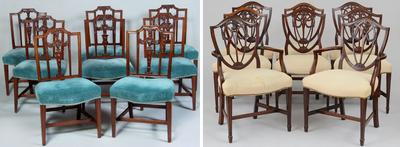
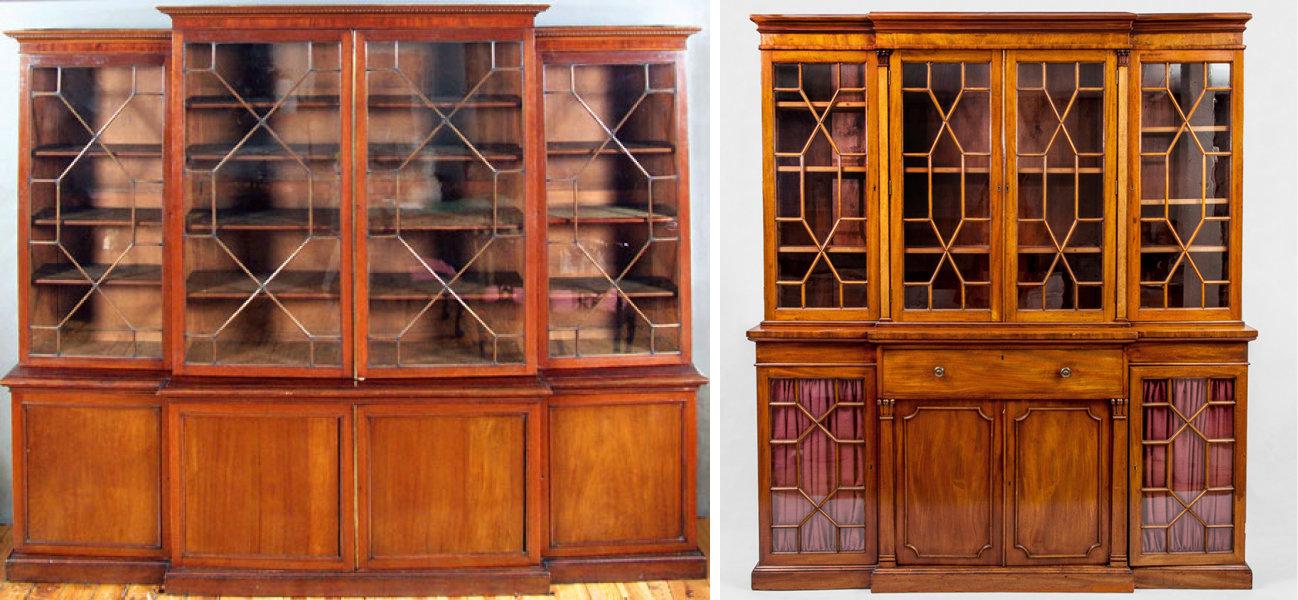

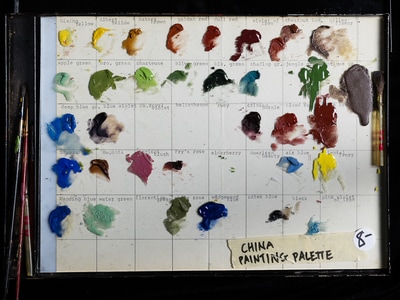
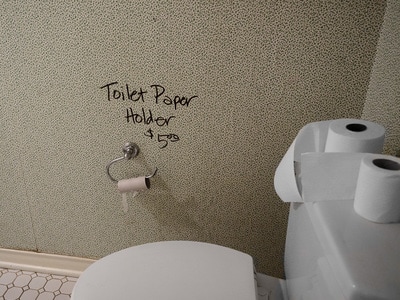
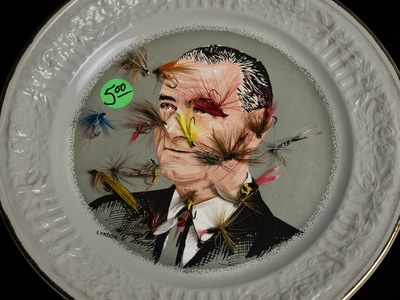
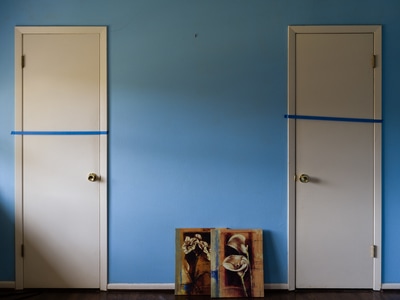
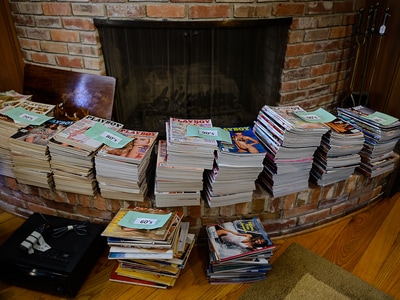
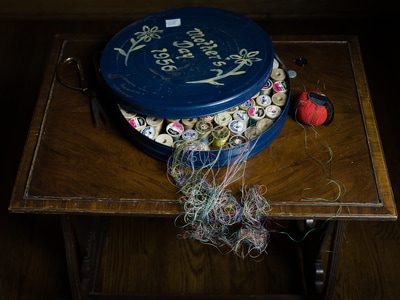
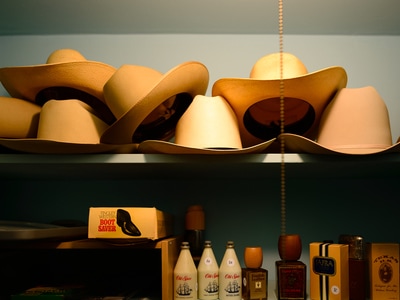
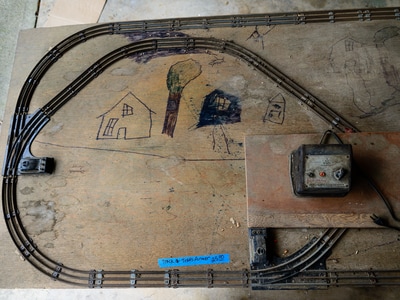
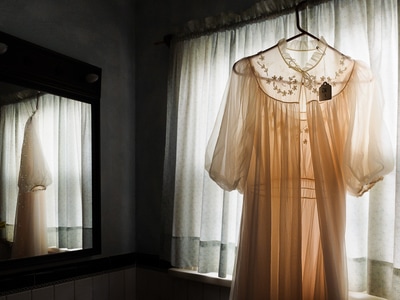
 RSS Feed
RSS Feed
